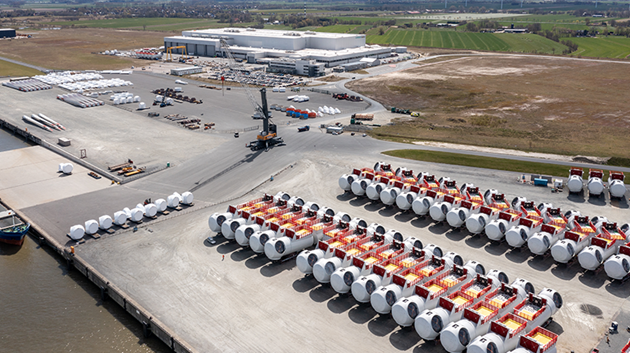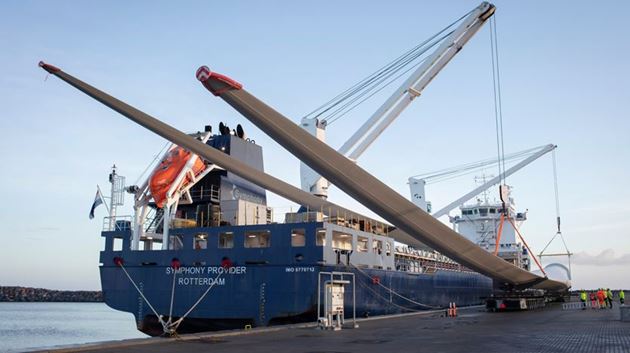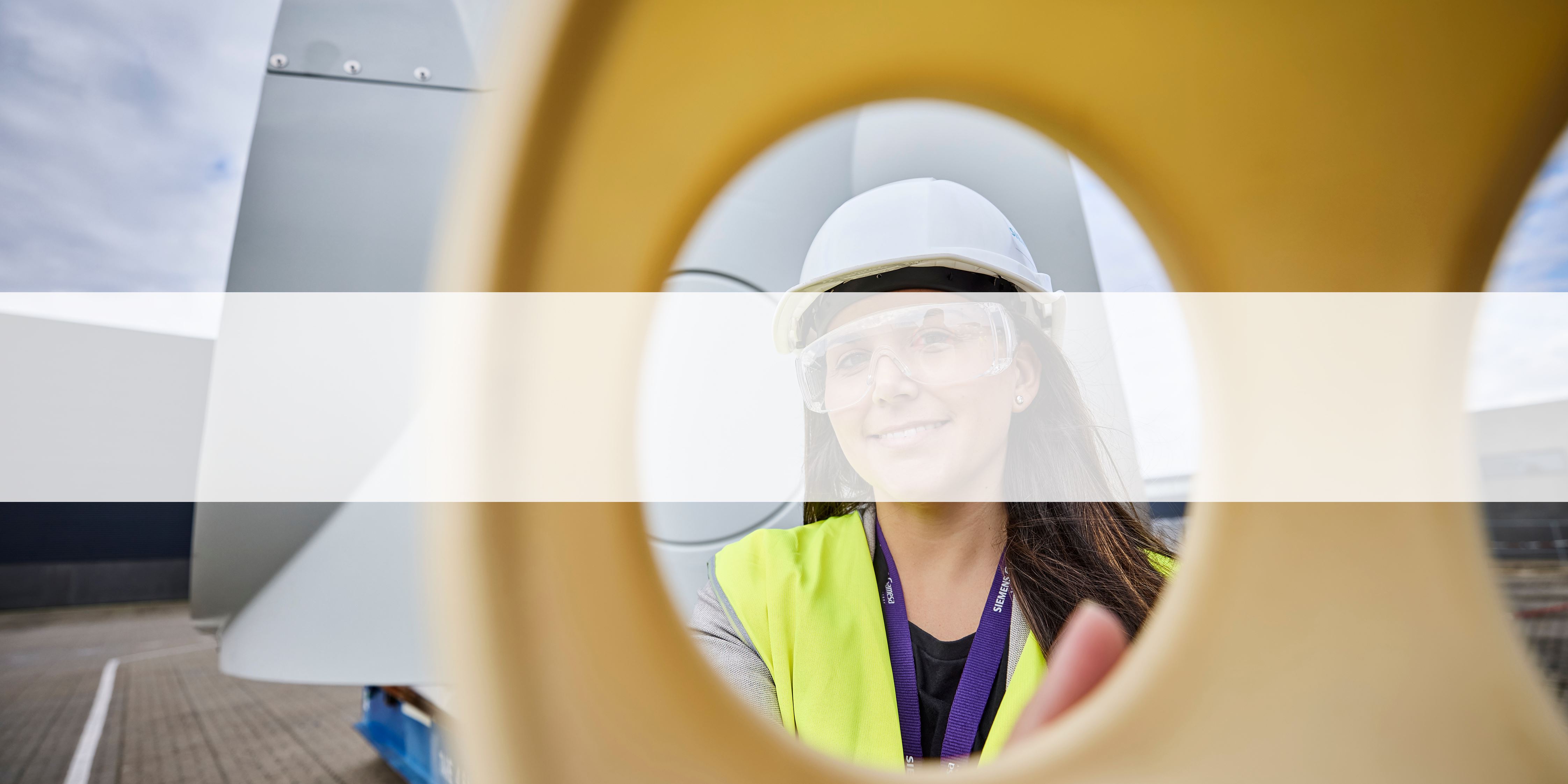
Diversity in STEM? No longer a wishful thinking
Madrid / 11 February 2022
A significant global gender gap has persisted throughout the years at all levels of science, technology, engineering and mathematics (STEM) disciplines across nearly all industries. Even though women have made tremendous progress toward increasing their participation in higher education, they are still under-represented in these fields.
There is no doubt that women face obstacles in finding employment in STEM roles. Diverse talent attraction and retention is a priority for Siemens Gamesa, and we are actively engaged in ensuring that our recruitment and hiring processes are inclusive at every stage, from attracting talent to making a hire.
Diversifying the energy workforce and ensuring that the workforce includes people from underrepresented groups is not only a moral and social imperative--it is a meaningful investment toward a just transition that drives measurable value and fuels growth.
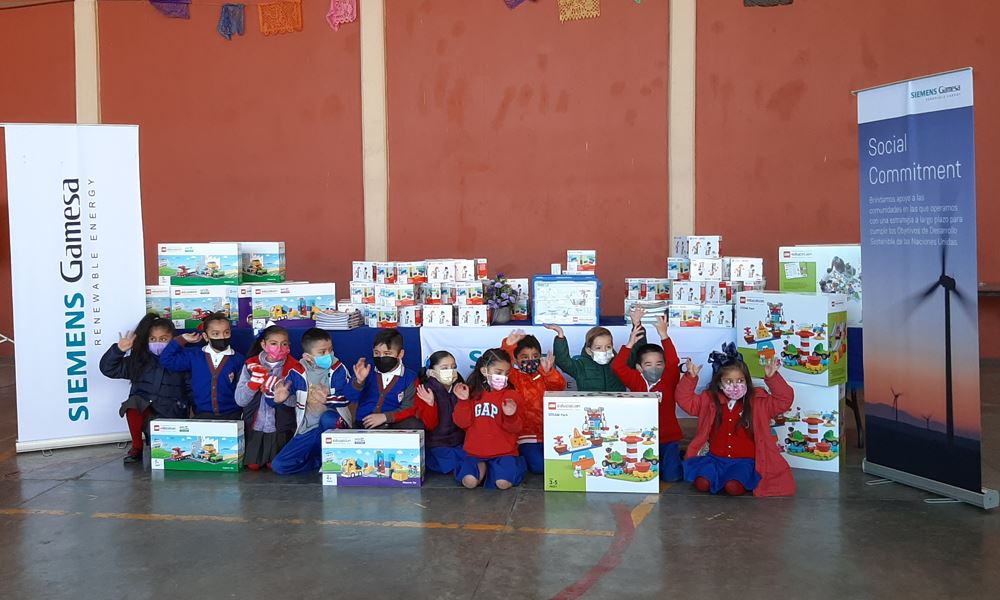
As a technological leader in renewable energy, Siemens Gamesa knows that investment in education always pays off, especially at a time when students turn their back on STEM.
To attract new talent to STEM, our long-term strategy is to show students, in particular girls, that those disciplines are not something abstract outside of our daily lives, but tools that empower us to make positive changes in society, starting with the fight against climate change.
Both programs are meant to be integrated in the classroom as an in-school activity giving every student a chance to discover his or her inner STEM, with a fun and rewarding activity that creates a positive perception of those disciplines.
Launched in Germany, Spain, the United Kingdom and Mexico, robotics with First Lego League helps students develop early engineering skills by enhancing logic, problem solving, and innovation. So far, we already have reached more than 5,000 students in 85 schools.
“To educate girls is to reduce poverty," said former UN Secretary- General Kofi Annan during the Global Campaign for Education in 2003.
In Mexico, Siemens Gamesa is providing scholarships to students in 18 schools throughout the country, with more than 2,000 girls participating. Among the role models of this initiative in Mexico is Arantza Méndez, a teenager studying mechatronics engineering who actively participates in First Lego League as a mentor. Arantza started robotics at the age of 7 during a summer camp. She realized robotics could solve and create almost everything.
“I have participated in hundreds of forums and competitions, the most recent one in Dubai at the International Astronautical Congress at the end of 2021,” she said. "There I realized that even with all the talent girls have in science, we must always go a step further to close this gap in STEM. We must be proactive, think ahead and not settle.”
But robotics is not only a way to learn new skills that will help students shine in their academic and professional careers, it is also a rewarding hobby during their formative years.
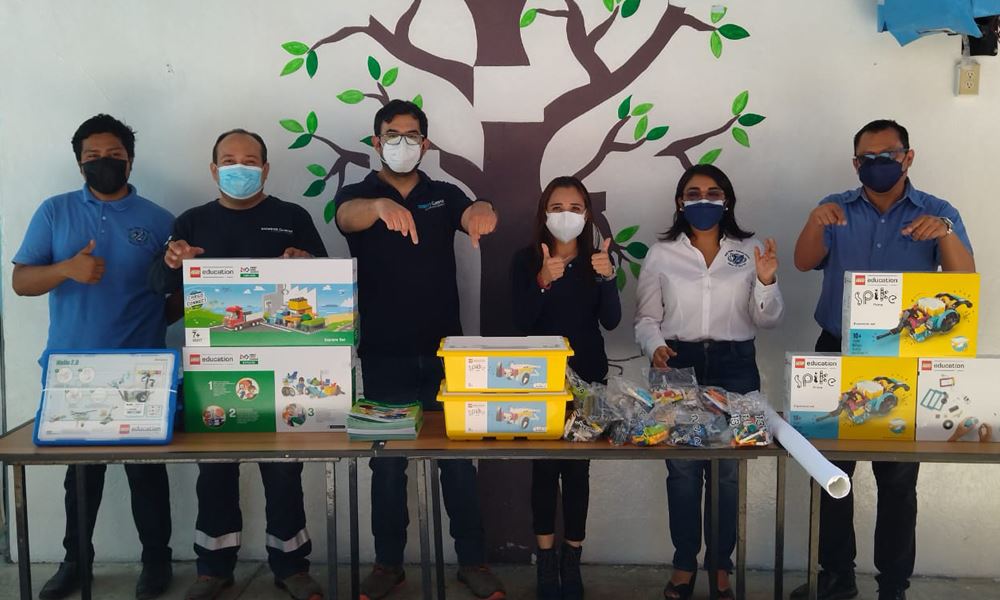
Based in Sarriguren (Spain), across the street from where Siemens Gamesa has its office in Navarre, they won in 2018 the Global Innovation Award of First Lego League celebrated in San José, in California. It was the first time that a team outside the United States won this category.
These types of initiatives add to what we are doing at Siemens Gamesa to promote the inclusion of all types of talent in our industry.


